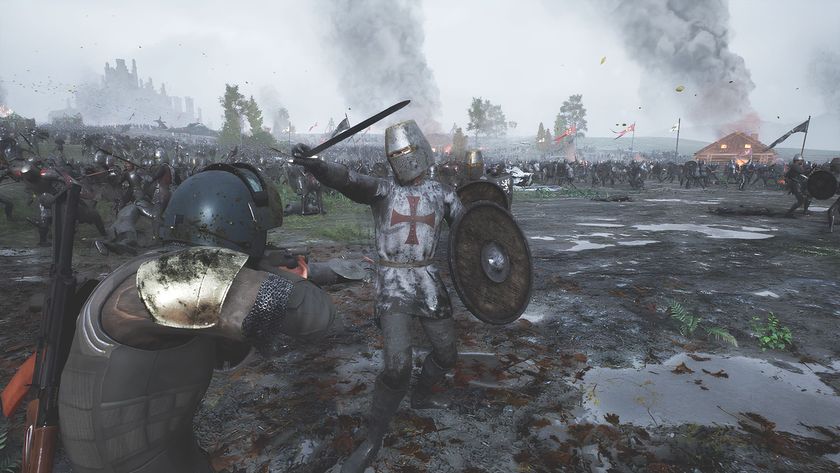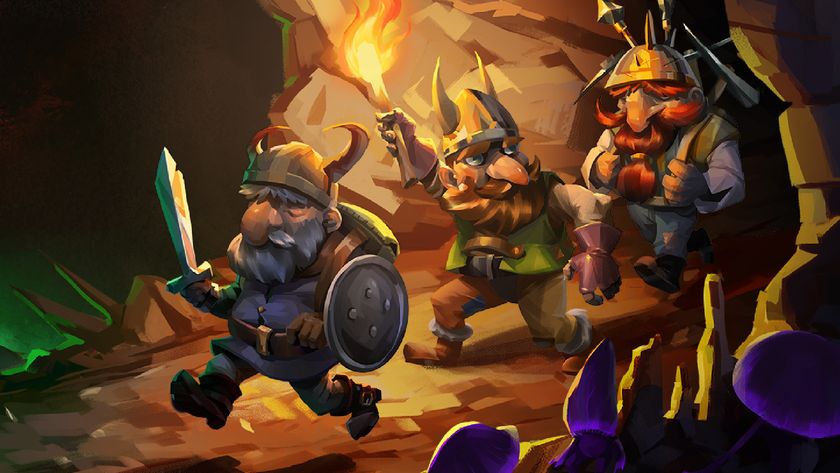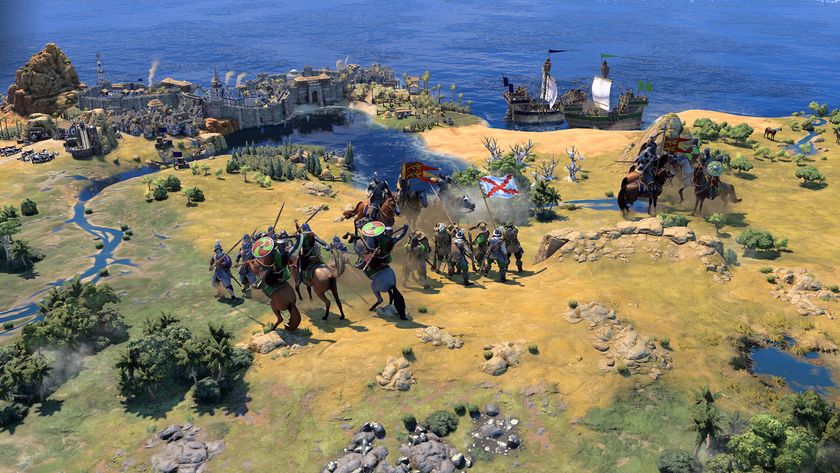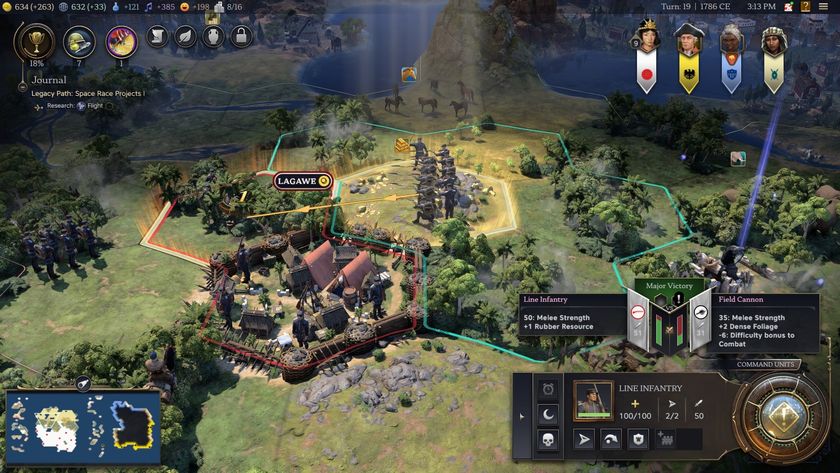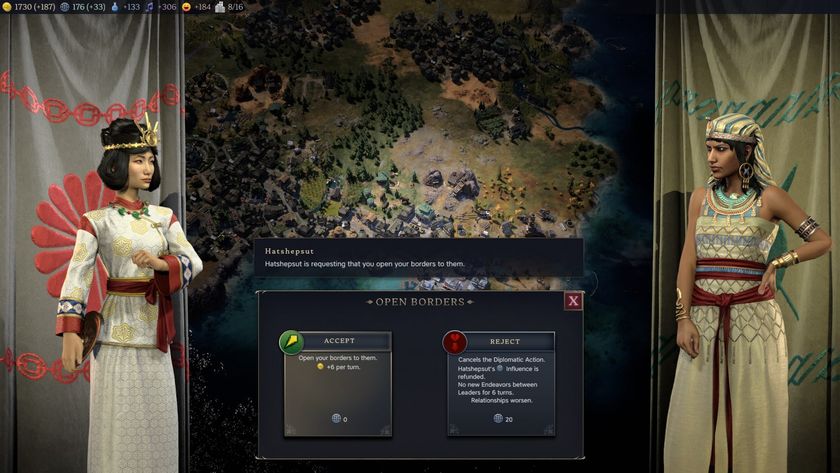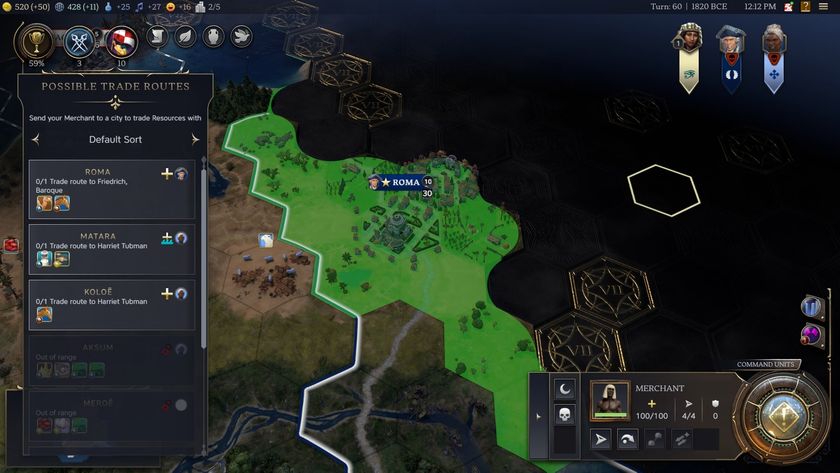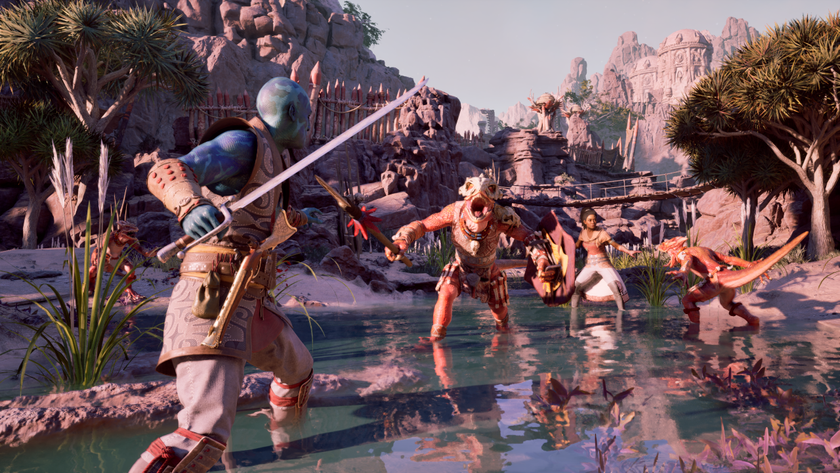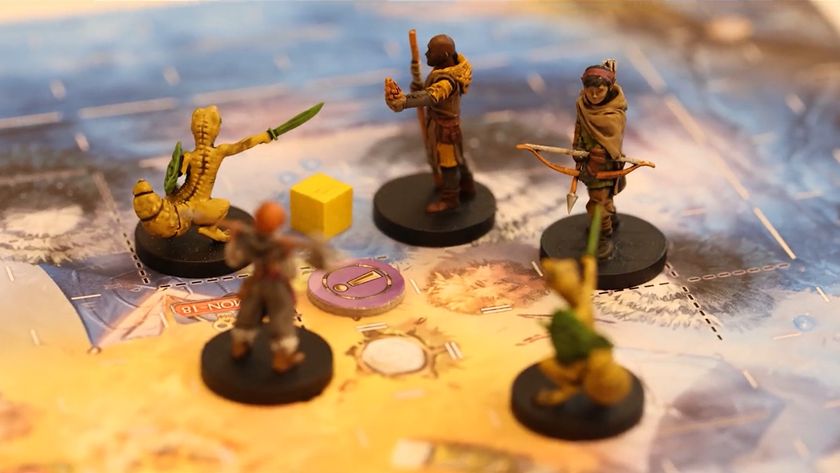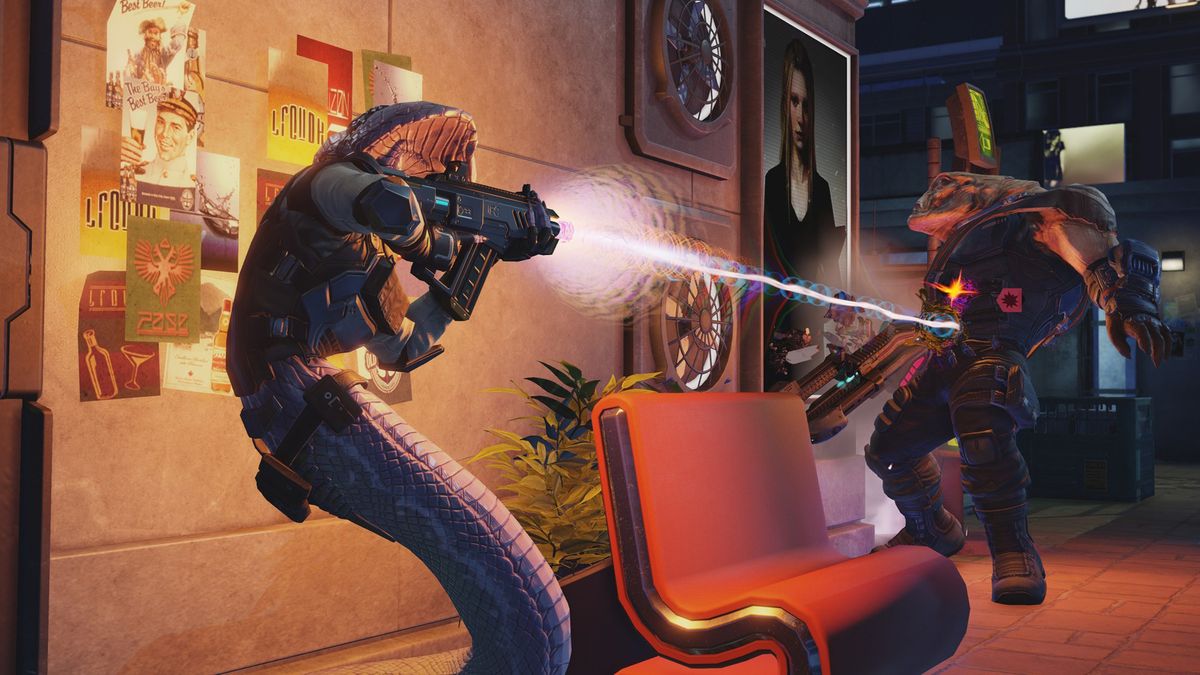
XCOM: Chimera Squad is a departure. It's perhaps the biggest shift to play since Firaxis dared to drop the hyphen, trading out the sprites for polygons when it inherited the series back in 2012. Tactical combat has been reenvisioned, expendable soldiers have become specialised agents, and the scale has shifted from planetary defence to keeping a single city under control. Chimera Squad is a more intimate expression of XCOM's high-intensity action, although that doesn't necessarily mean that it will be any less satisfying.
"After releasing XCOM 2 and the War of the Chosen expansion, we felt there were plenty of gameplay opportunities that had yet to be discovered," Mark Nauta tells me, the lead designer on Firaxis' latest creative endeavour. "XCOM: Chimera Squad has a more-focused story with human, hybrid and alien agents, Interleaved Turns and Breach Mode. This specific vision for XCOM made more sense as a standalone title as opposed to a direct sequel."
Welcome to City 31
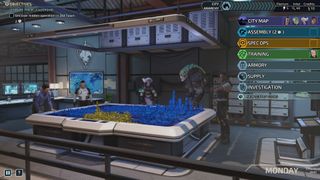
Set five years after the events of XCOM 2, Chimera Squad brings us into a world where humans and aliens are working together to build a new civilization. That's right, XCOM is all about cooperation and coexistence with the very foes you've spent years fighting against. The soldiers of Earth's armies and their former enemy combatants, abandoned by the Overlords in their haste to flee the planet, are giving peace a chance inside City 31.
Peace is, of course, precarious. While City 31 is supposed to be the model for how a post-invasion world should work, unity is forever hanging in the balance. It's the Chimera Squad's job to ensure that City 31 doesn't lapse into chaos, responding to combat in the streets while balancing an array of tactical operations and resources. Basically, as Nauta so keenly points out, "this is still an XCOM game!"
"You're going to be making critical decisions in combat, trying to keep your agents healthy, and then returning to HQ to help prepare for the next mission. You won't have enough resources for everything you want to do and you’re going to have to keep an eye on the bigger picture."
You have oversight of that bigger picture at you HQ, taking on missions across a city map to lower the overall level of unrest. Each district has its own unrest score, and should any of these reach critical mass then the temperature will rise across the entire city. If it gets too hot to handle? You'll fail the campaign. Think of it as the core campaign structure of XCOM pulled down to a micro, more human, level.
To avoid total anarchy then, you'll need to engage in combat against those seeking to disrupt the unification efforts. It's here where the changes start to come into play. "If you've played XCOM before, the interleaved turns will be the biggest change you'll notice in combat and it’s going to force you to play in a different style than you would previously," Nauta tells me.
Sign up to the 12DOVE Newsletter
Weekly digests, tales from the communities you love, and more
Wait your turn
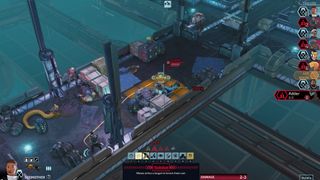
In XCOM: Chimera Squad, all unit turns are interleaved. At its most basic level, that means that you and your enemies will alternate turns automatically in a single timeline that runs down the right-hand side of your monitor. This is a huge shift away from the free-flowing, turn-based tactics system that XCOM is known for. Why mess with a winning formula? Firaxis is treating Chimera Squad as an opportunity to experiment with new ideas, and the "interleaved turns in XCOM represent a big shift in how players will play XCOM: Chimera Squad".
Once your unit reaches the top of the turn order timeline, you'll have full control over their movement, shooting, and abilities, just as you would have done in either of XCOM: Chimera Squad's predecessors. But the presence of the timeline ensures that your tactical plan will be forever changing; understanding which friendly or enemy unit will act next can completely alter the situation at hand.
"It presents new tactical options and decisions where you have an opportunity to make on-the-fly strategic decisions – reading the timeline will be an essential skill," says Nauta. "Sometimes that means prioritizing a certain enemy who has high health or attempting to disrupt and delay enemy action before they get the chance to carry it out. Sometimes you’ll have to forgo attacks in order to use agent special abilities to save themselves or an ally."
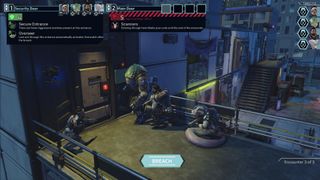
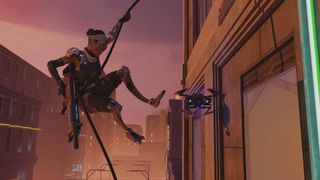
Looking forward to giving this new XCOM experience a try when it launches on April 24? Well you're going to need access to a PC, because lead designer Mark Nauta has confirmed with GamesRadar that "We don’t have any current plans to bring XCOM: Chimera Squad to consoles."
While the automatic initiative system running behind the scenes will automatically slot individual units into the alternating turn order once combat gets going, you will have some ability to alter the flow of the timeline. As do the enemy forces, naturally. It means you'll need to think not just one, but a few steps ahead at all times; weary of everything from unit positioning, cover opportunities, ammunition reserves, and your available abilities at all times.
Because of how much of a to and fro moment-to-moment play will likely be, you'll want to take full advantage of the 'Breach Mode', a phrase at the beginning of each encounter. It's here where you'll be able to choose your squad's entry point and the initial turn order of your agents. The tactical choices you during breaches outline your the foundation of your maneuvers; you'll have the option of moving straight into cover, getting the drop on enemies, focusing fire on powerful foes, or setting up units for powerful special moves.
"Breach Mode is an evolution of the Ambush mechanics from previous games," says Nauta. "In Breach Mode, you'll be given a selection of breach points that have various strategic advantages and disadvantages. The Breach phase helps set your tactics for the coming encounter. It's not just a matter of shooting enemies, either, since you can use agent positioning and their turn order to set yourself up for success. For example, you might reveal a powerful enemy who will be trouble once the mission starts. Using abilities like Verge's Float and combined agent fire, you might be able to drop an enemy who might be a significant threat during the encounter. Combined with splitting missions into separate encounters, and the interleaved turn order, it feels like you're always adapting to an evolving tactical situation in XCOM: Chimera Squad."
The introduction of an interleaved turn order is bound to be divisive. Whether it will improve the flow of XCOM's core combat or impede it remains to be seen, although it's certainly good to see Firaxis experimenting with its mechanics and attempting to iterate upon other strategy systems. Still, that isn't even the most controversial change to play.
Meet the agents
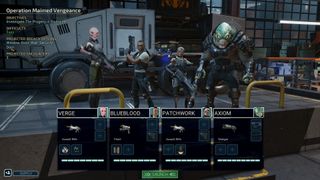
You can't keep a good agent down in XCOM: Chimera Squad. Literally. If an agent expends all of their hit points and bleeds out – you'll have a small window of time to try and revive a fellow agent once downed – their name and rank isn't merely recorded on the in memoriam wall as it would have been in XCOM or XCOM 2. In Chimera Squad, the mission fails entirely and must be restarted should an agent die.
XCOM has traditionally been structured around investing time into customisable and upgradeable soldiers that can fall in battle, with permadeath making every loss hit you straight in the heart. It's one of XCOM's best systems, bringing a real sense of risk and reward to every one of your decisions. XCOM: Chimera Squad has traded this out for a pool of 11 agents, each with their own own distinct personality and tactical abilities.
"The decision to move toward having unique agents in XCOM: Chimera Squad was partly driven by some of the choices we made in the War of the Chosen expansion for XCOM 2, where you had characters with distinct personalities like the Chosen, Elena Dragunova and Pratal Mox," Nauta explains. "Having your full squad composed of unique characters with unique abilities felt like a natural evolution of those decisions."
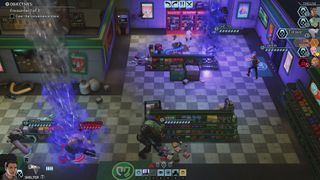
These agents can still be customised, equipped with new equipment back at HQ, and leveled up – great for earning new abilities to use in the field, for example – although you won't need to constantly worry about your favourite units being taken out of the game for good. It does, however, mean that Firaxis has been able to introduce combos into combat. Units will be able to utilise cooperative actions and unleash devastating combinations to help turn the tide in your favour, so you'll still need to think carefully about team composition.
This change also plays into Firaxis' wider ambitions to make a more story focused XCOM experience. "In addition, having specific agents allows us to dive deeper into the world of XCOM through their personalities and backstories. Whether it's battlefield chatter or character interactions, we hope that players will want to learn more about each agent and think about what the post-ADVENT world of XCOM is like for humans, aliens and hybrids."
A departure worth taking?
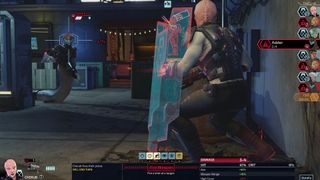
Like I said right up top, XCOM: Chimera Squad is a departure from what we've known XCOM to be this past decade. At its core, it's still looks to be a balance of tightly contested zones, tactical opportunity, and resource management. Though with some of the defining elements of the series changing, it'll be interesting to see how this new combat experience is received by those that love inhabiting the XCOM universe.
Given the calibre of creatives working on the project, I'd be surprised if it, at the very least, didn't arrive with the same attention to detail and balance that we've come to expect from games bearing the XCOM name. Nauta tells me that even though Chimera Squad has been built by a different development team to the one behind XCOM 2, it's still a group of veteran designers who have spent years working in this world. "I'm very glad and very humbled to lead a team that consists of a lot of veterans of XCOM's development. Each of the team leads on the game has deep and extensive experience working in the XCOM franchise as an artist or engineer. I'm very grateful for their support."
With the game set to launch on April 24, you won't have long to wait to see whether the changes are a good tactical decision to the series or whether they should be constrained to the realm of standalone adventures.

Looking for something to play while you wait? Why not check out our list of the best strategy games.

Josh West is the Editor-in-Chief of 12DOVE. He has over 15 years experience in online and print journalism, and holds a BA (Hons) in Journalism and Feature Writing. Prior to starting his current position, Josh has served as GR+'s Features Editor and Deputy Editor of games™ magazine, and has freelanced for numerous publications including 3D Artist, Edge magazine, iCreate, Metal Hammer, Play, Retro Gamer, and SFX. Additionally, he has appeared on the BBC and ITV to provide expert comment, written for Scholastic books, edited a book for Hachette, and worked as the Assistant Producer of the Future Games Show. In his spare time, Josh likes to play bass guitar and video games. Years ago, he was in a few movies and TV shows that you've definitely seen but will never be able to spot him in.
